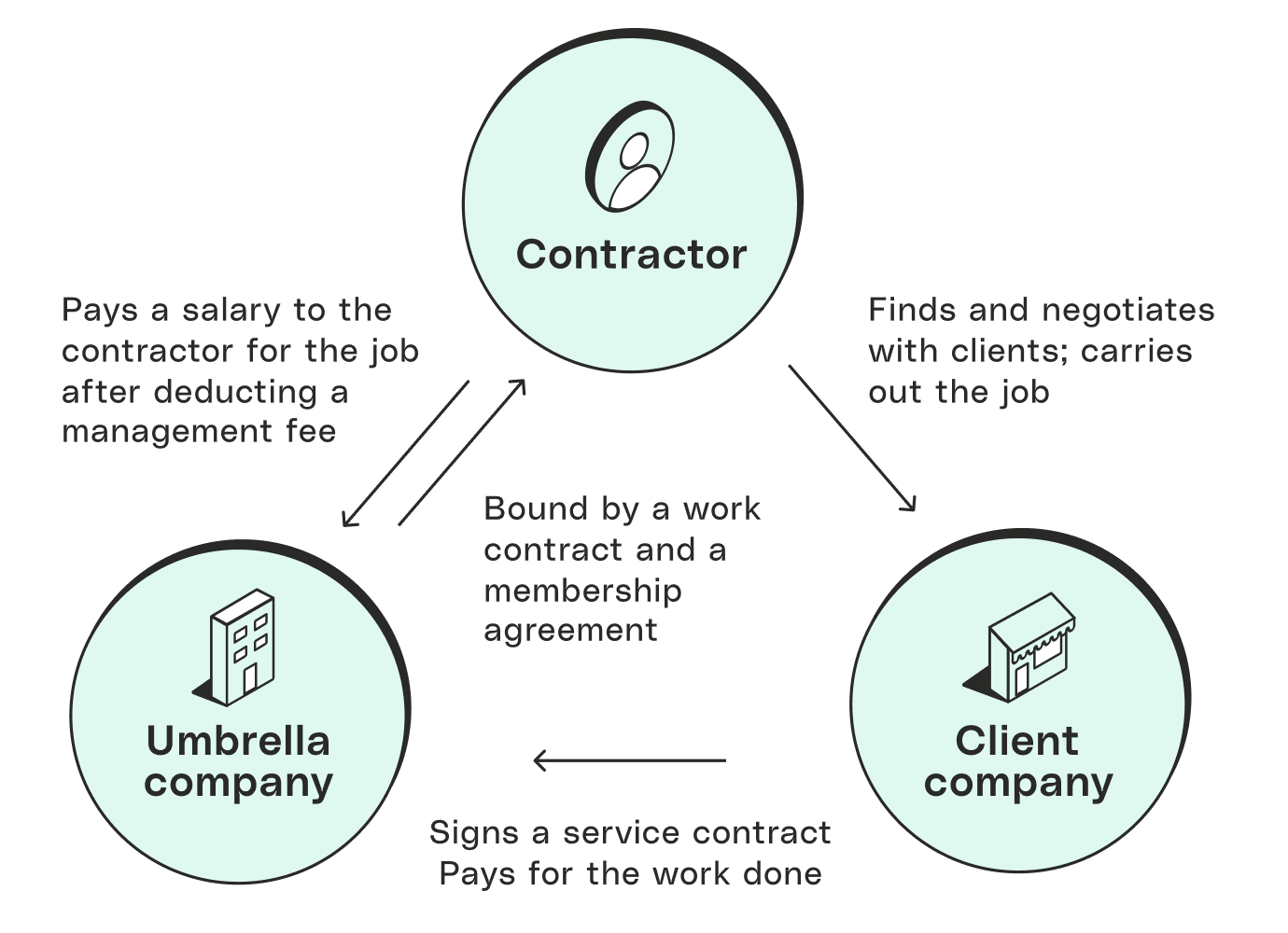Wage portage is a contractual relationship between three parties:
- an “employee”, who is often a contractor (a salarié porté in French);
- an umbrella company;
- a client company.
By agreeing to receive wage portage services, a contractor becomes linked to the umbrella company through two distinct contracts: a membership contract (contrat d’adhésion) and a work contract (contrat de travail). The contractor is effectively an employee of the umbrella company.
The membership contract sets out the terms of engagement between the contractor and the umbrella company.
The work contract gives the contractor a salaried status with all its associated social benefits. It includes all the usual legal mentions you would find in a traditional work contract (type of contract, duration of contract if the contract is fixed-term…).
Although technically speaking the contractor is a subordinate of the umbrella company, this “employee” maintains a decent amount of autonomy in the types of work they choose to engage in and can set their own prices for their services. In fact, it remains their responsibility to find work and prospective clients.
In the meantime, the umbrella company handles all the administrative and finance management for their employee. Not only do they oversee invoicing (quotes, invoices, order receipts…), but they’re also in charge of of following up with customers and submitting all of the required administrative declarations on behalf of the contractor. That way, the employee can focus on what they do best - their work.
In exchange for taking these tasks off the contractor’s hands, the umbrella company charges a management fee by taking a commission from their employee’s invoices.
Every time a contractor enters a work agreement with a client company, there needs to be an engagement contract signed between the client and the umbrella company. The contract outlines the nature, duration and pre- and post-tax prices of the service, as well as any relevant clauses that will ensure smooth delivery.
Once the mission is completed, the client company pays the umbrella company, which in turn pays the contractor the post-commission balance in the form of a salary.








